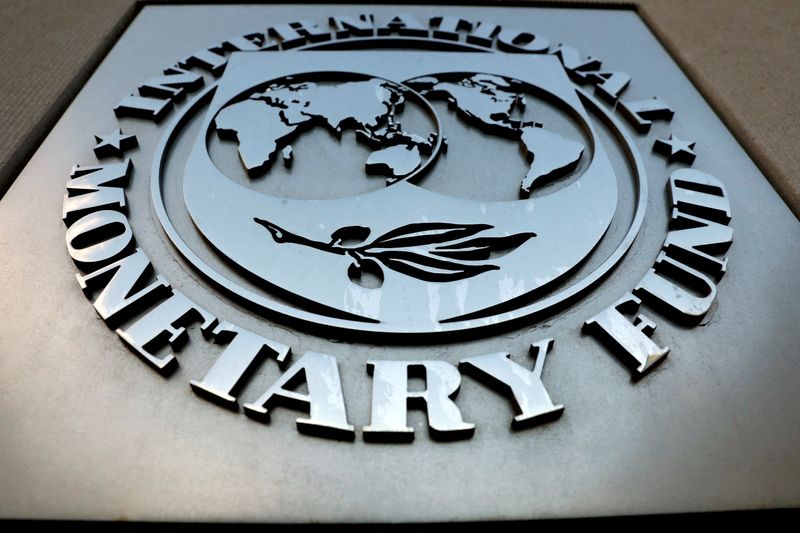By Andrea Shalal and David Lawder
WASHINGTON (Reuters) -The International Monetary Fund plans to tell China to boost weak domestic consumption, address its troubled real estate sector and rein in local government debt, problems that are dragging down both Chinese and global growth, IMF Managing Director Kristalina Georgieva told Reuters.
Georgieva said in an exclusive interview the messages will be delivered to Chinese authorities in a forthcoming IMF "Article IV" review of China's economic policies. The Fund will strongly urge Beijing to shift its growth model away from debt-fueled infrastructure investment and real estate, she said.
"Our advice to China is use your policy space in a way that helps you shift your growth model towards more domestic consumption," Georgieva said. "Because the traditional way of infrastructure, pumping in more money, in this current environment is not going to be productive."
China's aging population and falling productivity were playing a "suppressing role" in its growth rate, along with companies in the United States and Europe shifting supply chains away from China. China's problems in the real estate sector have also caused consumers to rein in spending, Georgieva said.
"We actually project that without structural reforms, medium term growth in China can fall below 4%," Georgieva said.
The IMF in July forecast China's 2023 growth rate at 5.2% and 4.5% in 2024, but warned it could be lower given the contraction in real estate.
Georgieva also said it was important for China to address consumer confidence in its real estate sector by financing the completion of apartments that buyers have already paid for, rather than bailing out troubled developers.
ANEMIC GLOBAL GROWTH
The IMF is preparing to issue a new set of global growth forecasts ahead of IMF and World Bank annual meetings Oct. 9-15. Georgieva said separately the institutions would decide on Monday whether to proceed with the meetings in earthquake-hit Morocco.
The new forecasts are expected to reflect concerns about anemic GDP growth around the world, as most large economies are still lagging pre-pandemic growth rates.
The United States is the only large economy to have recovered pre-pandemic growth, while China is four percentage points below pre-pandemic trends, Europe down two percentage points and the world down three percentage points.
With China generating about a third of global growth this year, its growth rate "matters to Asia, and it matters to the rest of the world," Georgieva said.
Asked about U.S. Commerce Secretary Gina Raimondo's recent comment that some U.S. firms viewed China as "uninvestible", Georgieva said: "There is some outflow from China. It is a trend that we need to carefully monitor, how it evolves over time."

She added there were some areas - including digital economy and green technologies - that remained attractive for investors.
She cautioned it was important to ensure China's big push on electric vehicles was not done using subsidies in a way that created unfair competition.